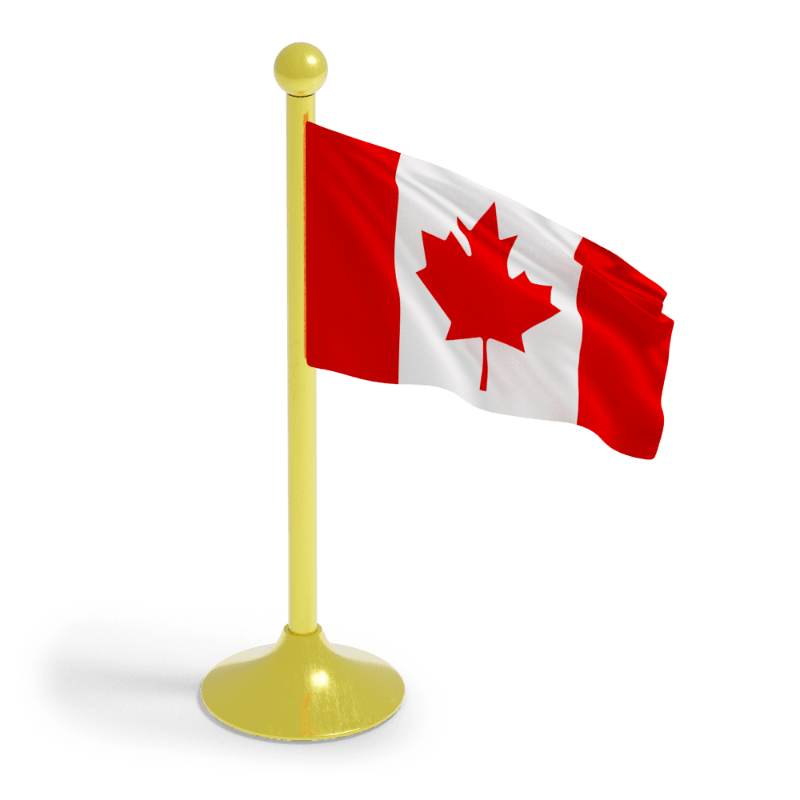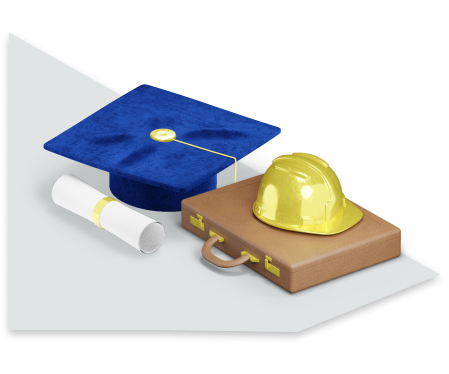Family or friends of the applicant may also submit letters confirming that they will support the applicant during his or her studies.
The following table show the amounts that a student is required to possess (all amounts in Canadian dollars):
|
Number of people
|
All provinces except Quebec
|
|
Single student
|
Tuition plus $10,000 for a 12-month period (or $833 per month)
|
|
For one accompanying family member add:
|
$4,000 for a 12-month period (or $333 per month)
|
|
For each additional family member, add:
|
$3,000 for a 12-month period per dependent child of any age (or $255 per month)
|
In Quebec, the financial requirements for prospective students are different. In addition to tuition fees, a prospective international student is required to show that he or she has the following funds, dependent on his or her situation.
|
Number of people
|
Total amount required
|
|
One person under age 18
|
$6,569
|
|
One person age 18 or older
|
$13,134
|
|
Two persons age 18 or older
|
$19,264
|
|
One person over age 18 and one under age 18
|
$17,652
|
|
Two persons over age 18 and one under age 18
|
$21,579
|
|
Two persons over age 18 and two under age 18
|
$23,290
|
If an application is approved
If an application is approved, the prospective student will receive:
- A Letter of Introduction (LOI) confirming the approval. This letter is not the study permit. The prospective student will need to present the Letter of Introduction to the immigration official when arriving in Canada. The immigration official may then issue the study permit to the student.
- An Electronic Travel Authorization (eTA) if he or she is from a country whose citizens need an eTA. In such cases, the eTA is indicated on the Letter of Introduction.
- As the eTA is linked to the applicant's passport, the applicant must travel with the passport used in the study permit application.
- A Temporary Resident Visa (TRV), if he or she is from a country whose citizens need a TRV.
- The TRV will be in the passport. The holder must enter Canada before the expiry date on the TRV.
- The TRV will also indicate if the holder can enter Canada only once (a single-entry visa) or multiple times (a multiple-entry visa). All applicants are automatically considered for multiple-entry TRVs.
- An individual submitting an application for a study permit does not have to submit a separate application for a TRV. If the application is approved, the TRV will be issued along with the Letter of Introduction.
Study permit renewal
After obtaining a study permit, students may need to renew or change the study permit during the course of their studies in Canada.
If a student at a post-secondary institution wishes to change institutions, study program, or level of study he or she does not need to apply for a new study permit. However, he or she is required to update IRCC upon changing institutions.
For example, a student may move from Bachelor level to Master's level, or from Geography to Philosophy, or from a college to a university, without applying for a new study permit. He or she does not need to apply for a change to the condition of the study permit. A student may study in Canada as long as the study permit is valid.
However, an international student moving from elementary school to high school, or from high school to a post-secondary institution, is required to apply for a change in the conditions of the study permit.
Options after graduation
Study permits expire 90 days after graduation, regardless of the date printed on the study permit itself. It is extremely important that international graduates update their status with IRCC within 90 days of graduation, or they risk losing status in Canada.
Many graduates are eligible to apply for a Post-graduation Work Permit (PGWP). The PGWP allows the holder to work for any employer anywhere in Canada for up to three years after graduation. Work experience gained on a PGWP may help facilitate an application for Canadian permanent residence, especially through programs such as the Canadian Experience Class and certain Provincial Nominee Program (PNP) streams.
If an international graduate does not apply for a PGWP, he or she may do the following to maintain legal status in Canada:
- Apply to change status to a visitor;
- Obtain another work permit if they are eligible for one (e.g., an employer-specific work permit);
- Apply for another study permit to continue a different study program. For example, a graduate may wish to continue on to a Master's degree program after graduating with a Bachelor degree; or,
- Leave Canada.
Foreign nationals are usually required to apply for a study permit if they wish to study in Canada. However, there are exceptions.
If the program you are joining is less than six months long, you do not need a study permit.
If you are a family member of a foreign diplomat, or if you are a member of staff of a foreign diplomat, you do not need a study permit to study in Canada.
Family members include spouses and common law partners and dependent children.
In addition, if you are a member of foreign armed forces of a country that is a designated state under the Visiting Forces Act, you do not need a study permit.
If you know you need a study permit, you may be required to apply for one as though you are outside of Canada.
You should apply for a study permit as soon as you receive your letter of acceptance (LOA).
Processing times may vary depending on different visa offices. They are faster for those who are eligible under the Student Direct Stream.
It is a fast-track program to process study permit applications within 20 calendar days. It is only available to residents of the following countries:
- India
- China
- The Philippines
- Pakistan
- Vietnam
- Morocco
- Senegal
- Brazil
- Colombia
- Peru
- Antigua and Barbuda
- Costa Rica
- Trinidad and Tobago
- Saint Vincent and the Grenadines
Candidates must also meet additional criteria, such as scoring at least a 6.0 on each skill of the IELTS Academic test, and obtaining a GIC of $10,000 CAD.
You may include your spouse/common law partner, and dependent children in your application. Your partner may then obtain an open work permit, and your dependent children may be able to study in Canadian public schools.
A DLI is an institution that is approved by the province or territory to host international students.
Yes you can. You do not need to change your study permit if you are changing institutions or programs. However, you need to let IRCC know if you have changed your institution.
If you wish to move to a DLI in Quebec from another province or territory, you are required to obtain a Certificat d’acceptation du Quebec (CAQ).
A study permit expires 90 days after the end of your program.
If you are taking prerequisite courses, your study permit will expire 1 year after the end of those courses. After that, if you are accepted into your main program, you will be required to apply to extend your stay as a student.
If you do not finish your program before the date on your study permit, you will be required to apply to extend your stay as a student.
If you finish your program early, your study permit will expire 90 days after that, regardless of the date on your study permit.
Yes. You may be able to leave Canada during your studies. Upon returning to Canada, you must prove that you are currently enrolled in your institution. You must also make sure that your visa or eTA is still valid, if applicable.
Eligible graduates may apply for the Post-Graduation Work Permit (PGWP) in order to stay in Canada and obtain Canadian work experience.
To find out if you would be eligible for the PGWP, follow this link.
If you are not eligible, or if you choose not to apply for the PGWP, you must maintain legal status in Canada by:
- Apply for other types of work permits depending on your situation and eligibility (e.g., a work permit that is tied to one employer)
- Apply to change your status to visitor, or
- Apply for a second study permit, allowing you to continue your studies.







